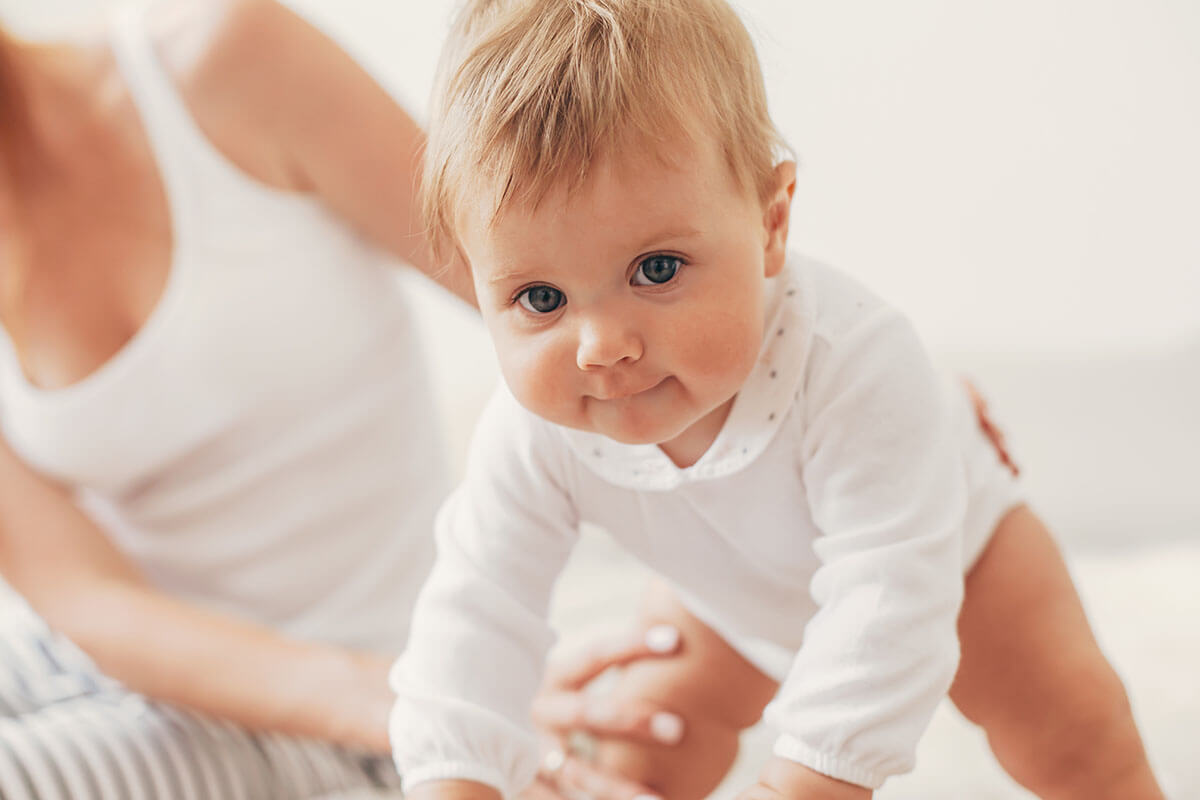Your child as a social being
The child now enjoys even more contact games, or games based on shared enjoyment and turn-taking(peekaboo) The child also begins to follow the gaze of parents (eye movements of someone else). The child distinguishes between left and right positions of someone else's head. For example: if adult looks to the right side, the child will do the same, usually without knowing exactly what the adult is looking at. Later, the child will also figure out what the adult is looking at.
Differentiation Phase
Month three to about month 8. The child starts to turn from warmth and security to the outside world and faces it with pleasure and confidence. The baby expects others to be like mother. The child begins to compare. The child will also focus more on how mother feels. The baby becomes increasingly curious about others and objects (such as objects or simple toys).
Separation-individuation phase
Mahler (1975) describes that the normal symbiotic phase ends here. The word separation means that the child distinguishes between himself and the mother. Individuation means that a child begins to develop an initial identity, with his/her cognitive skills (such as attention and concentration).beginning to develop. According to Mahler, this stage distinguishes between several sub-stages, with the first sub-stage in which the child becomes more alert to what is happening around him/her in the outside world. The child begins to cautiously explore, but retains the parents as the main point of orientation. It is as if a child is like a chick climbing out of the egg he has been in with his mother.
The milestones of the seventh month:
![]() The baby's head is well under control.
The baby's head is well under control.
![]() If the baby could not yet roll over to two sides, he certainly can after this month.
If the baby could not yet roll over to two sides, he certainly can after this month.
![]() Baby can push himself up until he sits.
Baby can push himself up until he sits.
![]() Baby is able to stay seated by herself.
Baby is able to stay seated by herself.
![]() Baby likes to test his/her strength by standing on parents' laps a lot.
Baby likes to test his/her strength by standing on parents' laps a lot.
![]() Baby likes to hobble on your lap.
Baby likes to hobble on your lap.
![]() Baby is getting better at holding things with his hand.
Baby is getting better at holding things with his hand.
![]() Baby prefers mom to everything else.
Baby prefers mom to everything else.
![]() Babies sometimes suddenly become very attached to 1 of the parents.
Babies sometimes suddenly become very attached to 1 of the parents.
![]() Baby loves to play peekaboo games.
Baby loves to play peekaboo games.
![]() When you call the baby, the baby will turn its head toward you.
When you call the baby, the baby will turn its head toward you.
Can I trust the world?
According to psychologist Erik Erickson, the first two years lay the foundation for basic trust in life, in others and in the world. When parents are able to properly meet the baby's needs, the child gains a solid foundation. A child gains a strong sense of trust in others, but therefore also in himself. The child relies heavily on parents to be nurtured and reassured. The building blocks of the sense of trust are warmth, regularity and a good dose of love and affection. If parents are not sufficiently able to establish a firm and secure environment, a child's development is at risk. Babies become frustrated or withdraw. And without being able to put words to it, they develop a lack of self-confidence. If parents are not sufficiently able to provide basic confidence, the foundation is laid for the child to feel that the world is unpredictable and even dangerous. It should be added that if at times a child's needs are not met and the environment is not completely safe, of course this is not a problem. Children are thus also prepared for a world that is not always safe.

